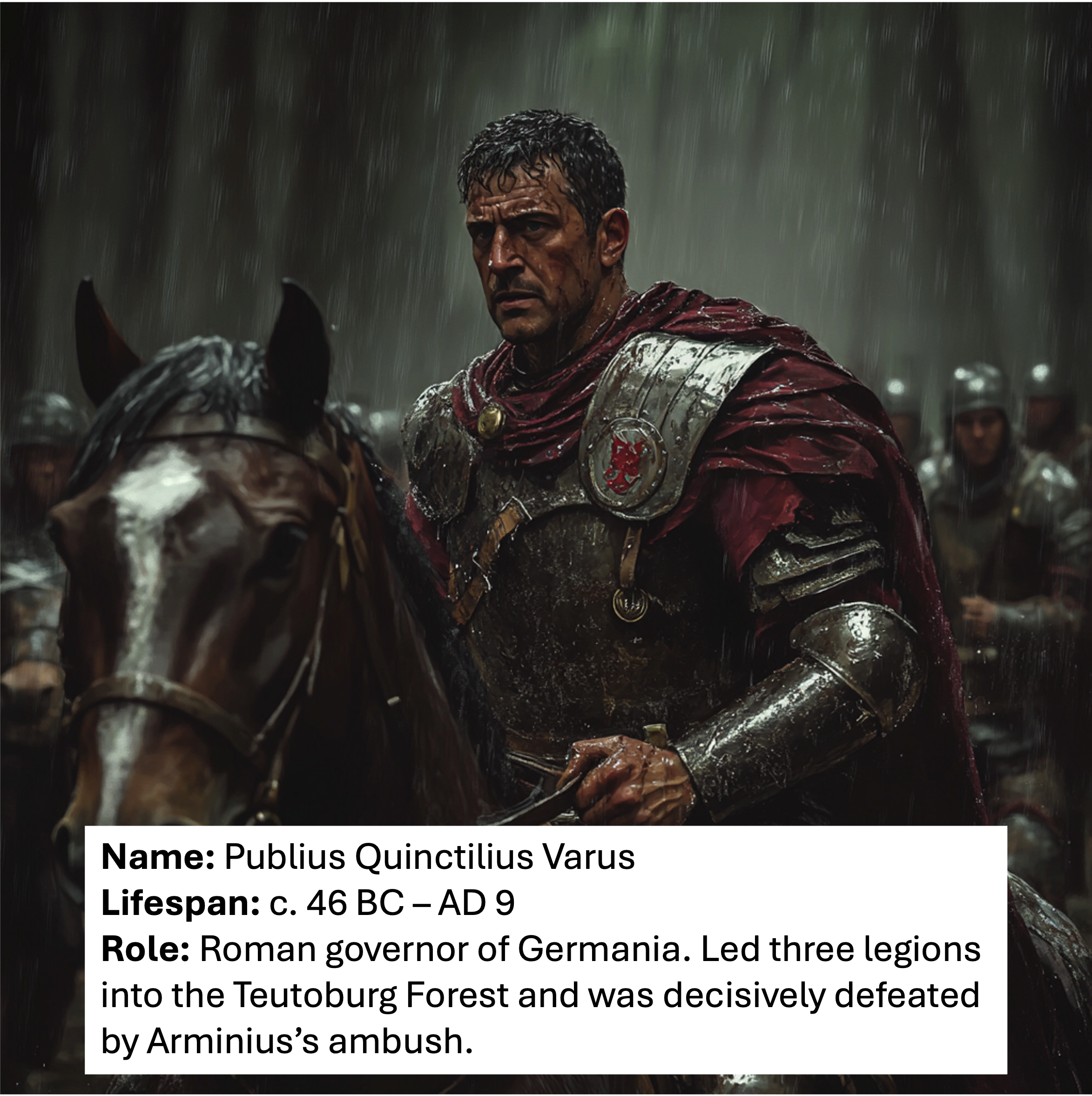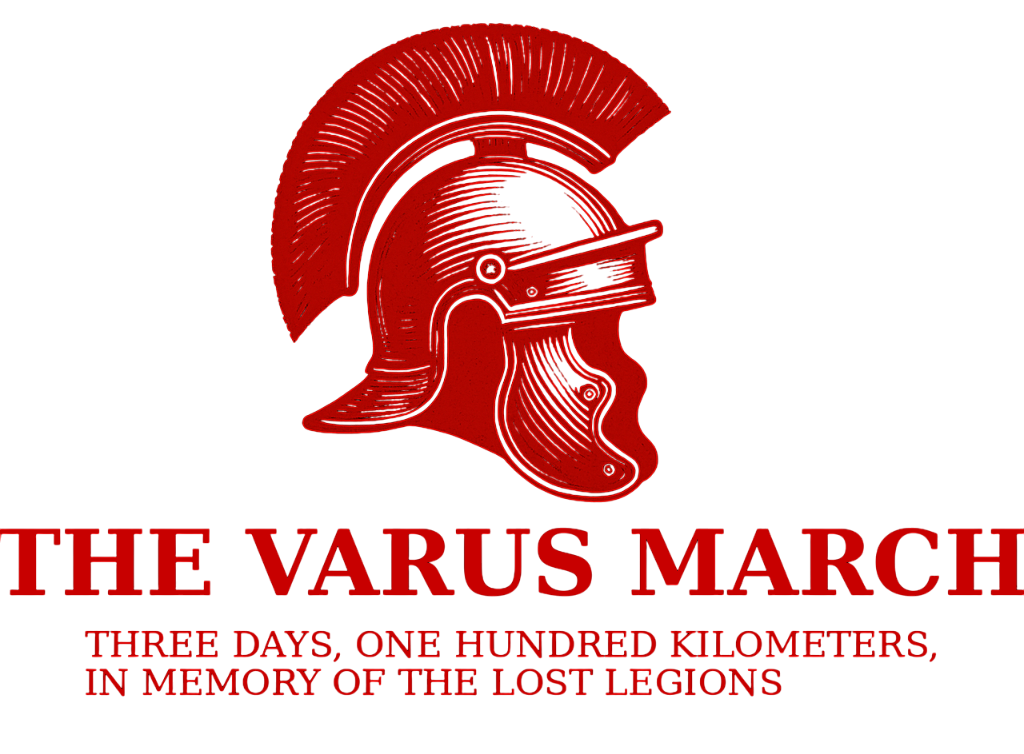
Introduction
Publius Quinctilius Varus (c. 46 BC – 9 AD) was a Roman politician and general during the reign of Augustus. He came from a prominent patrician family and had held important positions, including the governorship of Syria, where he was known for maintaining order and enforcing Roman law.
By 7 AD, Varus was appointed to govern the newly organised province of Germania, east of the Rhine. His task was to impose Roman administration and law among the Germanic tribes, integrating the region into the empire.
Role in the Events
Varus relied heavily on local allies among the Germanic elite, among them Arminius of the Cherusci, who had served as an officer in the Roman auxiliaries. Trusting Arminius’s warnings of an uprising, Varus led his three legions deep into the Teutoburg Forest.
The decision to leave the fortified Roman roads and march through unfamiliar, forested terrain with a cumbersome column exposed his forces to the ambush. Over several days of continuous attacks, the Roman forces were overwhelmed.
Realising the defeat was total and wishing to avoid capture, Varus committed suicide.
Legacy
Varus became a symbol of poor leadership within Roman historical memory. His trust in Arminius, his underestimation of the difficulties of administering Germania and his fatal decision to abandon secure roads all contributed to one of Rome’s most serious defeats.
The loss of the XVII, XVIII and XIX legions at Teutoburg led to a permanent Roman strategic withdrawal from territories east of the Rhine.
Augustus himself, according to Suetonius, lamented Varus’s failure for years, reportedly crying out, “Quintili Vare, legiones redde!” (“Quintilius Varus, give me back my legions!”)
